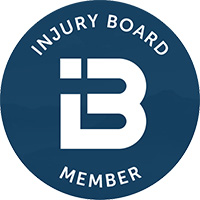
Does TBI Get Worse With Age?
Traumatic brain injury (TBI) can have a significant impact on a person’s life, both in the present and the long term. Commonly caused by motor vehicle accidents, falls, workplace accidents, and sports injuries, even mild TBI can result in cognitive disruptions, changes in speech and language skills, physical difficulties, dysregulated emotions, and more.
When your TBI is the result of someone else’s negligence, you can seek compensation for your damages through a personal injury lawsuit. The TBI attorneys at Mandell, Boisclair & Mandell welcome the opportunity to meet with you for a free consultation to help you better understand your rights.
The financial burden associated with TBI can be substantial. Some studies have found the lifetime cost of medical expenses alone can reach $4 million in cases of severe TBI. Even cases of mild TBI can require hospital care and rehabilitation, which can cost thousands of dollars per day depending on the type of care and the setting in which it is administered. The cost of these services is often compounded by an inability to work during recovery, further exacerbating financial concerns when you are already coping with the emotional and physical toll of the injury.
When you suffer a brain injury in an accident, you are entitled to seek compensation for medical costs, missed wages, physical and emotional pain and suffering, and all other damages related to your injury. The TBI lawyers at Mandell, Boisclair & Mandell will review your claim for free and provide you with information about all of your options.
Call Mandell, Boisclair & Mandell at 401-273-8330 to schedule your FREE consultation today. Based in Providence, we welcome clients from all nearby areas of Rhode Island and Massachusetts.
Age Groups Most at Risk for TBI
The Mayo Clinic reports that the age groups most at risk for TBI are children aged 0-4, adolescents aged 15-19, and adults aged 65+. Falls are the leading cause of brain injury in both older and younger victims. Motor vehicle accidents and sports injuries are the top causes for teenagers and young adults. No matter the cause, however, it is important to know how to identify TBI and to take action at the first indication of trauma. When diagnosed and treated early, it may be easier to prevent some of the long-term complications associated with brain injury.
How to Identify Signs and Symptoms of TBI
Immediately following brain injury, you may experience several different symptoms. The extent of symptoms will be influenced by the type and intensity of your head injury.
Potential symptoms of TBI include:
- Persistent or recurring headaches
- Experiencing dizziness and feeling unsteady or lightheaded
- Difficulty understanding or processing information
- General confusion
- Problems focusing on tasks or maintaining attention
- Seizures, spasms, and loss of coordination
- Loss of consciousness
- Challenges with thinking or speaking
- Loss of memory
- Impaired motor function
The severity and duration of these symptoms can vary, but even minor symptoms can temporarily affect your ability to perform everyday tasks, maintain employment, and engage in social activities. Prompt treatment can help to reduce risks and guard against longer-lasting consequences.
What Are Some of the Long-Term Impacts of TBI?
Long-term complications of TBI may include:
- Continuous or frequent headaches
- Chronic and long-lasting pain
- Ongoing issues with short and long-term memory
- Difficulty focusing on tasks or maintaining attention
- Challenges with planning, organizing, and completing tasks
- Persistent feelings of hopelessness or sadness
- A lack of interest in activities
- Excessive worry, nervousness, or fear
- Increased frustration, anger, and mood swings
- Alterations in behavior or personality
TBI can cause problems finding or maintaining a job. It can result in struggles in performing daily tasks and interfere with independence. It can also cause serious strain on personal relationships, potentially damaging friendships and family relationships and leading to a sense of isolation.
Does TBI Worsen With Age?
Research indicates that aging can exacerbate the long-term effects of TBI. People living with TBI may experience accelerated:
- Loss of muscle function and mass
- Risks for Parkinson’s Disease, seizures, and stroke
- Loss of balance and mobility
- Risk of death
A study conducted by the Perelman School of Medicine at the University of Pennsylvania found that, over the 30 years researched, the mortality rate for individuals who had suffered a moderate to severe TBI was nearly three times higher than for those who had never suffered a head injury.
While TBI can get worse with age, natural age-related changes in brain structure can make it harder for older adults to recover from brain injury sustained later in life. Aging slows the brain’s ability to heal and regenerate. This can result in prolonged recovery times and complicate the process of regaining lost abilities.
No matter if you sustained a TBI earlier in life or one when you were older, it is important to monitor symptoms and report any changes to your doctor right away. While age-related TBI complications are common, they may also be treatable, which can help to mitigate their impact on things like mobility, independence, and social interaction.
How a TBI Attorney Can Help
Living with TBI can be emotionally, physically, and financially challenging. The costs associated with TBI treatment—including rehabilitation and long-term care—can be astronomical, and the wages lost due to an inability to work or diminished working capacity can quickly add up. In addition to the financial impacts of TBI, emotional struggles, physical difficulties, and forced changes to your lifestyle should also be included when calculating the damages your injury has caused. This is where an experienced TBI attorney can make all the difference.
A TBI lawyer will be able to assess your damages, taking into account things like your current and projected medical expenses, lost wages, and need for assistance—both human and technological—to manage day-to-day. An attorney can also evaluate how your injury has impacted your social life, your ability to do the things you enjoy, your life expectancy, and other issues that don’t come with a fixed cost. They will gather the evidence needed, build your case, and deal with insurance. They will also represent you in negotiations and, when needed, in court, to fight for maximum compensation. Equally important, your TBI lawyer will stand by your side, help you find resources, and work to ensure you have access to the help you need to live the best life possible.
With close to 50 years of experience, the attorneys at Mandell, Boisclair & Mandell understand the nuances and complexities of TBI claims. Having secured some of the most substantial settlements and verdicts in the state, we have garnered a reputation for thorough and effective representation. However, never content to simply rest on past accomplishments, our firm remains dedicated to each client we serve. Our experienced lawyers are involved in every case, ensuring personalized attention throughout the legal process. We are committed to fairness and steadfast in our pursuit of justice for the individuals and families we represent.
Contact Our TBI Attorneys for a Free and Confidential Case Review
If you or a loved one has suffered a brain injury, contact our Providence TBI attorneys for a FREE case evaluation today. We proudly serve clients throughout Rhode Island, including Warwick and Cranston, along with nearby areas of Massachusetts.





























